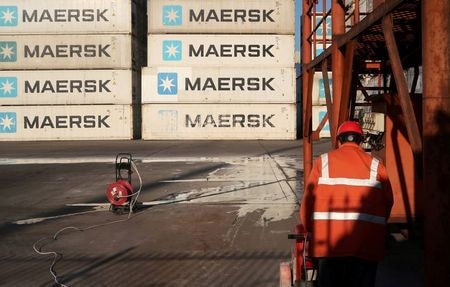Maersk buys eight zero-carbon tankers as green push gathers steam

Shipping giant Maersk has today taken its biggest yet step towards “greening” its fleet by buying eight new tankers powered by carbon-neutral methanol.
Each of the vessels, which will be built by Hyundai Heavy Industries, will be able to carry 16,000 containers.
When they hit the water in early 2024 they will save 1m tons of carbon dioxide a year, the world’s biggest shipping firm said.
The FT said that each ship would cost around $175m, giving the overall investment a value of around $1.4bn. Maersk will have the option to buy four more of the vessels.
Decarbonising the shipping industry, which accounts for 3.0 per cent of the world’s carbon emissions, is seen as a vital step in achieving global net zero climate ambitions.
Maersk said that half of its customers, including consumer giants like Amazon, Unilever, and H&M, have already set net zero targets for their operations.
Soren Skou, the firm’s chief executive, said the Danish company was committed to helping its customers clean up their operations’ carbon footprints.
“The time to act is now, if we are to solve shipping’s climate challenge”, he said. “This order proves that carbon neutral solutions are available today across container vessel segments and that Maersk stands committed to the growing number of our customers who look to decarbonise their supply chains.
“Further, this is a firm signal to fuel producers that sizable market demand for the green fuels of the future is emerging at speed.”
Michelle Grose, head of logistics at Unilever, said: “Unilever is committed to accelerating the transition to clean transport solutions, not just in our own operations but along global value chains as we work to achieve net zero emissions by 2039.
“With logistics and distribution accounting for around 15 per cent of our greenhouse gas emissions footprint, it’s important that we work with partners shifting to lower carbon fuels. We are proud to partner with Maersk as they pioneer carbon neutral transportation on the high seas.”